A clump of undetermined green mass drops from the ceiling. It merges with a headless body lying on the ground, after which a lady in armor tells you that you can't die and that things have gone quite pearshaped around on this island. Welcome to Dead Cells, a Roguevania where you pick up the blade, bow and/or shield in pursuit of the ones who may have had something to do with your predicament, or die and try again. It's a bleak perspective, but the tight combat pulls you in soon enough and the rewarding yet surprisingly safe progression system keeps you encouraged. From a personal standpoint, everything that puts me off from a regular Roguelike game, Dead Cells compensates for with a fair mechanic designed to keep you determined through but not protected from your future trials.
Despite its light-hearted protagonist and colorful environments, Dead Cells is a game of dark implications. You were beheaded. The prisoners are said to have a status lower than dogs and rats, often abused by the guards. The malaise, an unknown but deadly disease is running rampant throughout the land and every area you visit is filled with monsters, some of which may once have been human. Corrupted mages, skeleton archers, giant teethed leeches that drop bombs upon death. What unites them is their hostility, and they'd all like to see you dead. They'll have to try really hard, though. You're equipped with a body that can dodge through almost anything, possessing the good fortune to frequently run into weapons you are perfectly capable of using.
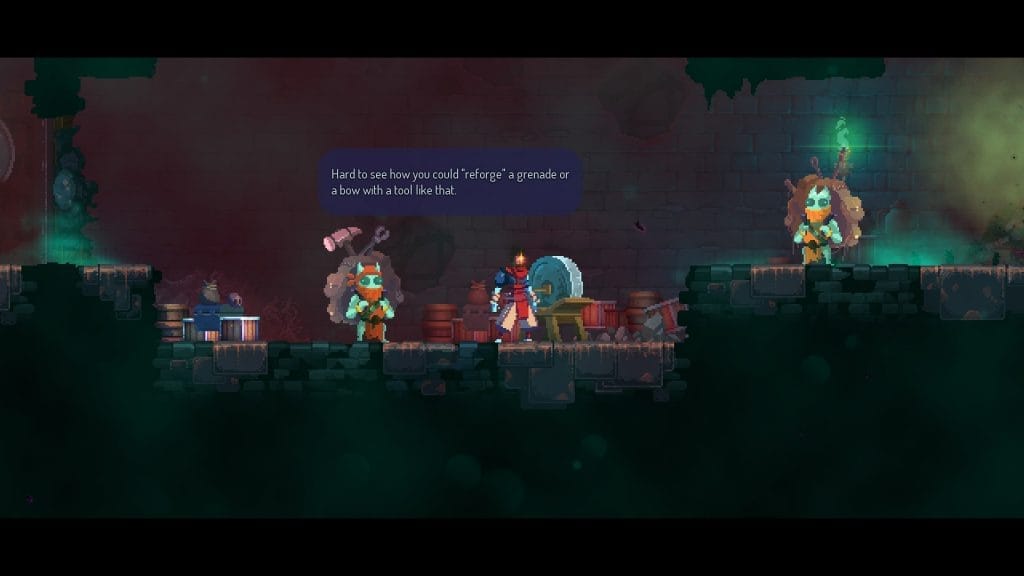
A weapon is no good without a satisfying movement and combat system, both of which are stellar in Dead Cells. The basic movement feels smooth without any input lag. Most people start out with cautious movement, but soon enough everyone learns that as long as you know how to time your dodge rolls and learn the attack patterns of enemies, you can fly about the battlefield with the confidence that you'll reign victorious as though you were a merciless ninja. The permanent runes you earn from beating specific bosses add to this experience, as some allow you to break through weak floors or even climb walls.
Combat feels visceral, as hit confirmations look and sound concise and unmistakable. Enemies receive varying levels of knockback depending on your weapon used, while in return the screen flashes and sound feedback inform you perfectly of when you are hit. The game slows down at just the right moments, particularly when you're being damaged greatly. Combine the responsive and free movement with your impressive lethality, and you'll find that the more experienced you become, the more you'll fly like a butterfly and sting like a bee.
Despite being a permadeath game, Dead Cells may very well have the best method currently existing for saving progress in a Roguelite (or a Roguevania, as it calls itself). Defeated enemies drop gold and Cells, the latter of which are used to unlock weaponry from the Collector. Once unlocked, you receive a free copy and have a chance of running into it in future runs. You'll find him in safe zones alongside the Blacksmith's Apprentice, who lets you reroll passive stats on your items. Guillain is just past them, and he allows you to pick up mutations. After a boss fight, you'll also encounter the Blacksmith himself, who allows you to spend Cells to permanently influence the RNG in the game. Altogether this means you have a great level of control over how harshly the game will treat you, although some unlocks may require several runs to make available.
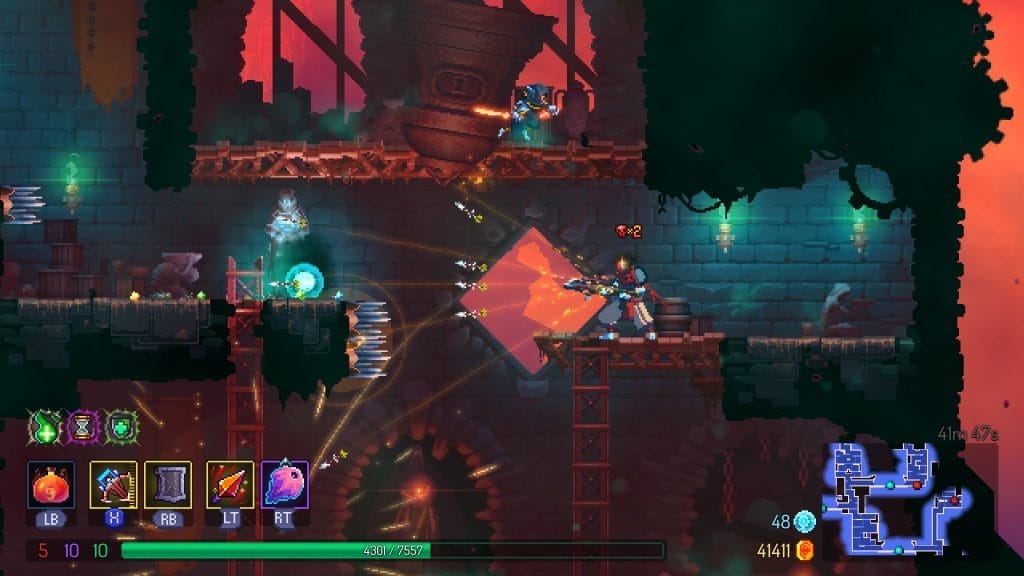
As unlikely as it may be, it is perfectly possible to reach the final boss, the Hand of the King, in your first run. Some bosses, however, require a detour that isn't immediately available. You'll start out with defeating an Elite Undead Archer that unlocks a rune with the capability to grow vines from those small green clumps on the ground you may have seen strewn around the game already. Another will unlock the ability to break through some weaker patches of ground, and the Spider rune allows you to climb and hop between walls like you were the Spider-Man himself. This, in turn, gives you access to different exits, leading to different areas with possibly different blueprints.
There's one problem with this concept. If you spend Cells to unlock a weapon you later find sub-par or annoying, you've just made your future RNG rotation that much more undesirable. There's no recourse for when you've unlocked an undesirable item. The developer has stated on the Steam forums they were looking into a possible re-locking feature, but there's almost no more news on that anymore. That's a shame because being able to re-lock items you disliked unlocking would be valuable to undo the damage you've done based on an uninformed decision. Alternatively, letting us try weapons before investing in them would be great.
The aspects of the game that the developers do touch on tend to improve dramatically. Brutality, Tactics or Survival remain as the three stats that you can improve through scrolls found in the game. In older iterations of the game, choosing between raising your these stats seemed more a choice between melee strength, bow/item strength or maximum health, respectively. Survival always had a gigantic max health boost compared to the others, but barely did more than make shields a bit stronger. The other two stats were essential if you wanted to deal good damage, meaning that no matter what build you had in mind, you at least had to splash some on Survival if you wanted to last, and vice versa for damage.
With the current version, that has all changed. While Survival still has a slightly larger bonus to maximum health, Brutality and Tactics will add significantly to it as well, leaving you free to dedicate or experiment with your prospective build. Every stat upgrade in its own tree does have diminishing returns for every subsequent HP upgrade, but it's still more lenient than it used to be.
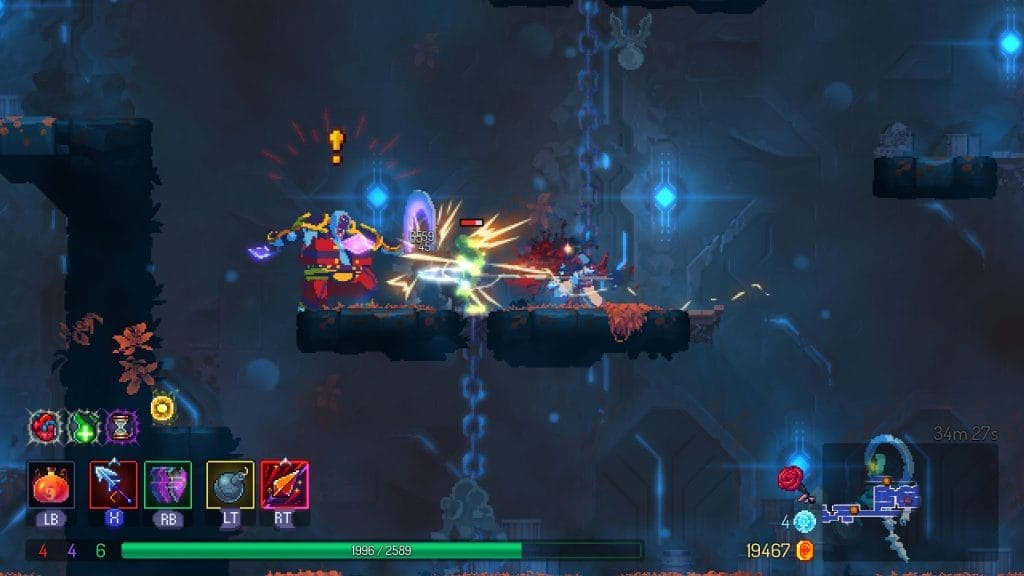
Everything in the game feels polished. I couldn't tell you with certainty whether the movement and combat handling has improved, I can only tell you that somehow I've been more than capable of timing my Shield Parries perfectly, as opposed to much earlier in development where I always failed at that part. There is no doubt in my mind Dead Cells will see all the polish it needs until it is perfect. The patches make great strides and it very much seems like the developer listens to player feedback. Not to mention that mod support is starting out with a slowly but surely populating Steam Workshop.
One aspect I didn't expect to see improvements on was both the lore and story behind the game. In the past, you simply started by meeting a knight who spoke a few words then headed off to seemingly die later on. Now you'll find several useful characters have joined the Collector in the safe area, and loading screens hold short quotes that hint at what the Dead Cells universe entails. At random, you'll also run into small areas in non-safe areas that pause the timer and hint further at what's going on. It certainly seems like that's going to receive a lot of attention in the future as well.
While we're on the subject of improving the impossible, Dead Cells' music is another that deserves special mention. From the sewers to the castle rooftops, the music perfectly encapsulates the environment you're in and the atmosphere you're already taking in. Not to mention that the timing of the music is always top notch. In my preview, I thought the music organically changed when excitement happened, but I'd like to retract that statement. The timing is simply perfect, knowing on just the right moment when you'll encounter enemies while you run across the level. Even if you somehow idle about doing nothing, you'll find yourself appreciating the thematic instruments and choir making you feel as though you are part of an epoch taking place. There's a good reason why you can buy the Soundtrack. It's that stellar.
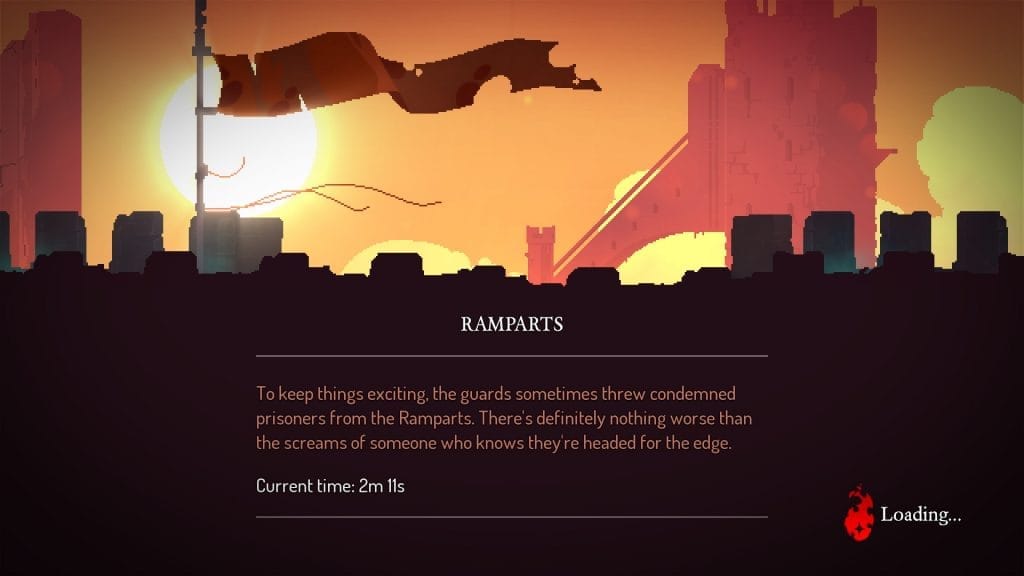
Dead Cells not only understood its potential but maximized on it. Motion Twin shows a willingness to constantly improve upon their work, and now with Steam Workshop support, it has shown it's willing to accept player modifications for further improvement. Combine all these factors, this willingness to improve and be improved, and you'll agree. There's no doubt that Dead Cells wants to set the standard in terms of polish and responsive gameplay.
When you die, feeling determination instead of anger is an unusual outcome. If you've played smart, you'll have spent your earlier Cells towards personal progress, and your death was probably the result of inexperience. Next time, you'll come back and know what you're in for. The Hand of the King may yet live, but now you know his tricks, his wiles. In your journey, you will adapt and prepare so you can find yourself at his doorstep once again, ready for round 2. Or 3, or 20.
Truly, Dead Cells is a game about being the undying assassin you've seen in a few horror/thriller movies. You will not relent, you will not stop until you've slain your quarry. Big or small, these foes are all prey. With every run, every death, every hit you can feel yourself learn while using Cells between levels to improve your odds in whichever way possible. Dead Cells is the first Roguelike/lite where I don't just feel, but know that I have a higher chance of doing well in my next run. Everything you do is progress, even dying. Because in undeath, we learn to take revenge.
Our Dead Cells review was conducted on PC via Steam and GOG (Affiliate) with the latter code provided as part of our ongoing partnership. The game is also available on PlayStation 4, Xbox One and Nintendo Switch.
Review Summary
Pros
- Responsive Movement
- Tight Combat
- Light-Hearted Yet Intriguing Lore
- Amazing Music
- Colorful, Well-Discernable Environment
- Very Rewarding Progress System
Cons
- Lack of Re-Locking Items
- No Broken Level-Destroying Cannons
Have a tip, or want to point out something we missed? Leave a Comment or e-mail us at tips@techraptor.net
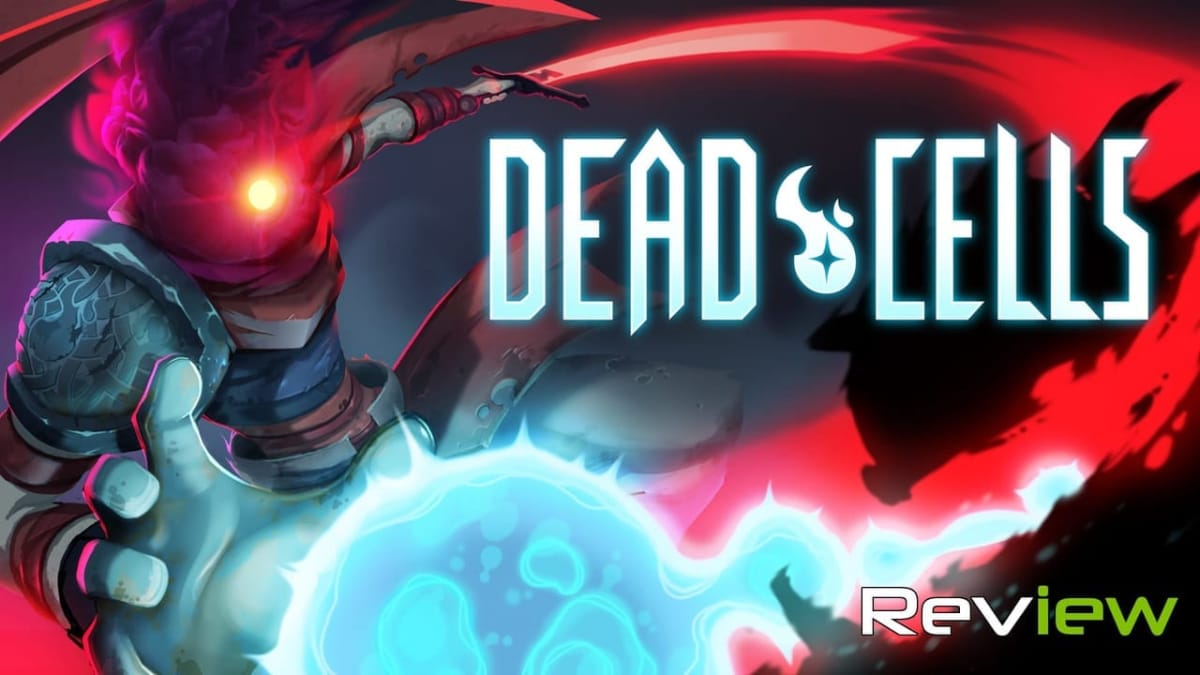






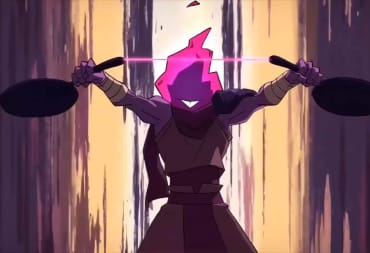
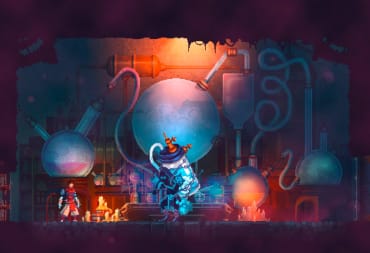



.jpg?itok=L93QNWUR)